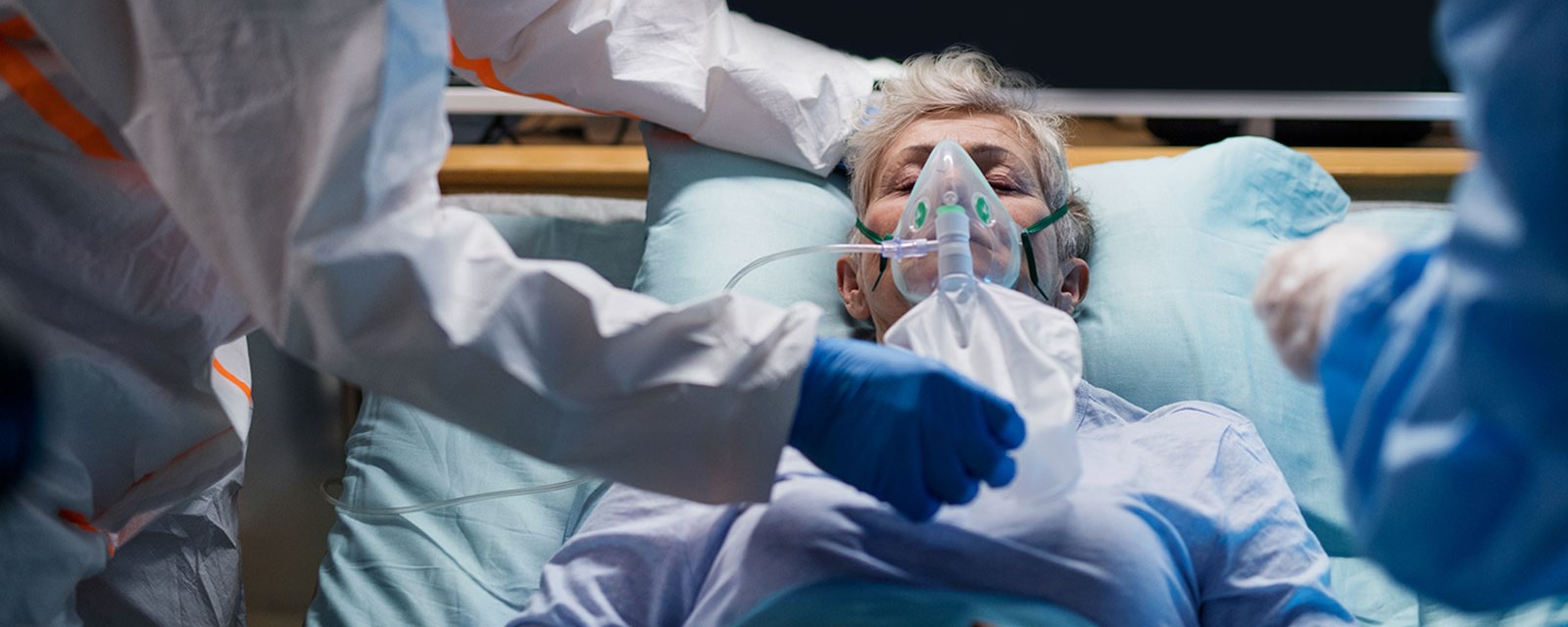
Improving long Covid recovery outcomes through rehabilitation
Dr David McWilliams, Associate Professor and Clinical Academic Physiotherapist for critical care at University Hospitals of Coventry and Warwickshire, is one of many physiotherapists helping Covid patients recover in ICUs, as seen in this video in The Guardian.
Here he talks to the RSM about the importance of early mobilisation for long Covid patients and how rehabilitation doesn’t stop after patients have been discharged.
What are you seeing day-to-day on Covid critical care wards?
The patients admitted to critical care with Covid-19 have certainly been some of the sickest I have ever seen in my career. They are very prone to desaturation and from my experience the majority have required deep sedation, paralysis and prone positioning for at least the first week of admission.
Because of this, when the sedation is stopped and patients begin to wake, they are presenting with significant intensive care acquired weakness and up to 70% develop delirium. Within our Trust, the average ICU length of stay for patients ventilated with Covid-19 is approximately three weeks, and as a consequence, this is likely to cause a significant challenge for rehabilitation services moving forwards.
For patients admitted into ICUs, how has this impacted their recovery from Covid?
We are already aware that long-stay patients within ICU are at high risk of developing physical and psychological morbidity, with recovery taking months or even years. A third of working-age patients still need help with basic activities – such as going to the toilet, getting out of bed and getting dressed – up to one year after leaving intensive care.
Up to half of all patients admitted to ICU for whatever reason are readmitted to the hospital in the first year after being discharged and some are unable to work again because they are suffering with cognitive impairment akin to early Alzheimer’s disease. These readmission rates are associated with greater primary care encounters and result in not just greater resource utilisation, but also a higher number of lost working and school days for patients and their carers, which can persist for up to five years.
There have been some reports of patients experiencing ‘survivor’s guilt’
These impacts are likely to be similar if not worse for those admitted with a diagnosis of Covid-19. Additionally, for patients with Covid-19 the psychological impact will likely be further exacerbated by the restrictions on visits from family and friends, being treated by staff wearing full PPE, combined with the practicalities around space and movement, for example with ICUs at full capacity there is less room for mobility.
There have been some reports of patients experiencing ‘survivor’s guilt’, as the nature of how Covid-19 is spread meant that many patients had friends or family who also suffered from Covid-19 but perhaps did not survive.
How important is early mobilisation and rehabilitation for long Covid patients?
During the first wave of the pandemic, we were able to reorganise our services to offer physiotherapy from 8am to 8pm, seven days per week within ICU. Patients were then discharged to a specialist Covid-19 rehabilitation ward with access to the multi-disciplinary team for ongoing rehabilitation.
Due to additional pressures during the second wave, such as keeping other services open, there were less staff available for redeployment, which resulted in limited rehabilitation provided in both ICUs and the ward. The clinical impact of this was evident as patients in the second wave were slower to get out of bed on ICU and left unable to stand at ICU discharge – whereas first wave patients were able to step and transfer to a chair. This meant that at the point of hospital discharge, only 33% of patients were able to be discharged home without rehabilitation follow up, in comparison to 50% during the first wave of the pandemic.
Delays in early patient mobilisation can have a detrimental impact on a patient's physical status and a depletion of physiological reserves, in turn impacting their ability to wean from mechanical ventilation.
In the longer term, this will impact the patient's functional outcome as the longer a patient stays inactive whilst receiving mechanical ventilation, the weaker their respiratory system becomes. Other underlying issues can also then lengthen the recovery process such as, muscle atrophy and deconditioning, swallowing dysfunction and malnutrition.
Patients in the second wave were slower to get out of bed on ICU and left unable to stand at ICU discharge – whereas first wave patients were able to step and transfer to a chair
What is needed to improve long Covid recovery time both in the hospital and after they have been discharged?
Patients with long Covid have been shown to have a complex symptom profile affecting multiple organ systems, and in order to support rehabilitation, patients must have early and consistent access to multi-professional rehabilitation services.
In a recent study of over 3,500 people with long Covid, approximately half reported a reduced work schedule compared to pre-illness and a quarter were still not working at the time of survey completion at seven months post-illness.
And prior to the Covid-19 pandemic, follow up for patients admitted to critical care was rare. A survey of critical care follow-up provisions identified only 27% of hospitals provide follow-up clinics, and less than 10% are offered access to structured rehabilitation programmes.
There needs to be urgent action taken to ensure that hospitals have provisions in place to offer patients the rehabilitation support they need during admission and after they are discharged from the hospital.
Dr David McWilliams will be speaking at the RSM’s ‘Spotlight on long Covid’ meeting on Thursday 8 July. The meeting highlights the latest clinical understanding and evidence surrounding long Covid, looking at the various syndromes associated with it, and what the leading research has discovered about this complex condition.
Prices start from £18. Find out more and register here.
